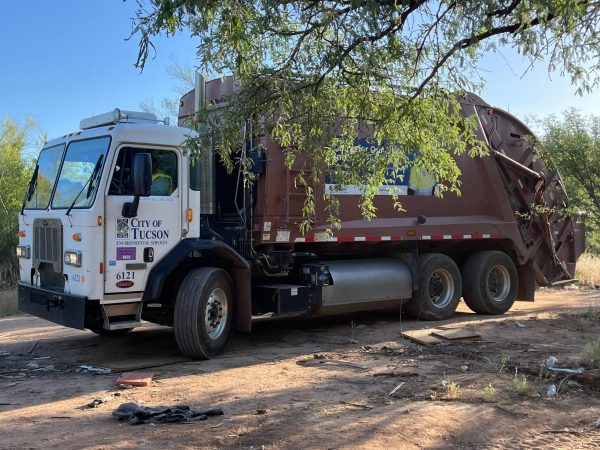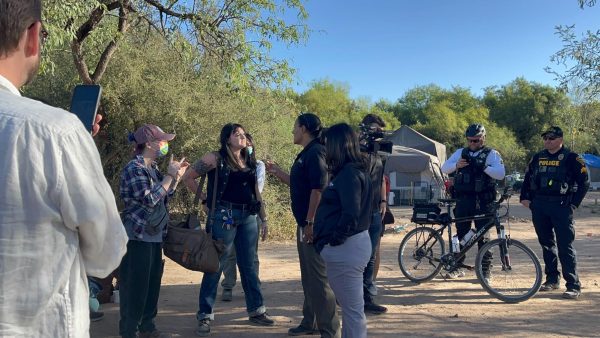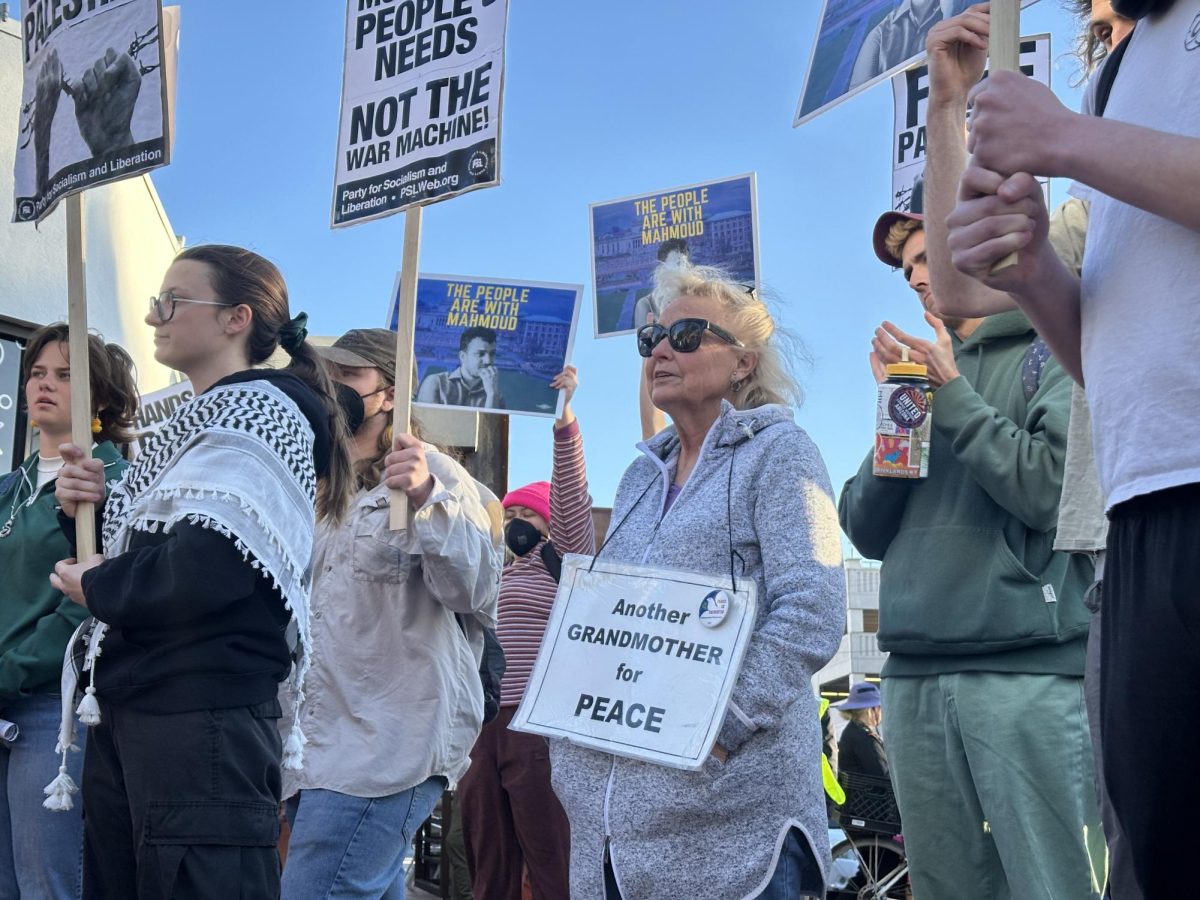Officials from the City of Tucson and the Tucson Police Department began clearing individuals out of a portion of Tucson’s largest homeless encampment on the morning of Thursday, May 23. The encampment is located in 100 Acre-Wood near Davis-Monthan Air Force Base.
City officials cleared Zone 1 of 100 Acre-Wood, the northern part of the homeless camp, for PFAS chemical testing. This is one of three zones the city plans to clear by the end of the year.
Since 2009, Tucson Water has been testing for PFAS through its Sentry Water Quality monitoring program, an initiative to identify unregulated substances in the water supply. Tucson Water has detected unregulated substances at wells near Davis-Monthan Air Force Base and as a result are performing more testing.
“On May 14 we came in and we had all the camps in this zone identified and numbered on a GPS map and we provided individual notice to each camp,” Chris Avery, assistant city attorney at the City of Tucson, said.
The city began with Zone 1 because “the most entrenched and the most long-term campsites and also the most critical areas are [located in] Zone ,” Avery said.

Once PFAS testing is complete, the city plans to move forward with building a community mountain bike park. 100-Acre Wood Bike Park is an ongoing collaboration between the Davis-Monthan Air Force Base, the City of Tucson and the Sonoran Desert Mountain Bicyclists.
Community members, local mutual aid groups and activists gathered while people were being cleared to advocate against removal. The planned development of a community mountain bike park in place of the encampment has fueled concerns and raised questions about the needs of the homeless that are being sidelined for recreational projects.
“I absolutely understand that you want to have a bike park, but we need to be focusing on real human life before a bike park in the City of Tucson,” Victoria DeVasto, the Director of Community on Wheels, said.
DeVasto said the forced removal of residents from Zone 1, due to PFAS chemical testing, disrupts the lives of vulnerable individuals who have established long-term campsites and the shelter and support provided is not enough.
“The shelter provided is slim. The shelter provided is a high barrier. You can’t have pets, you can’t have more than a suitcase. You have to be sober for most of them. This is something that is absolutely crucial, we need more resources and shelter if we are going to come out and destroy people’s homes,” DeVasto said.

According to other members from Community Care Tucson, another local mutual aid group, those present witnessed police indiscriminately taping off and clearing out campsites that were not a part of Zone 1.
Regarding community members’ concerns, city officials said they are providing enough solutions and resources for the encampments, including efforts to connect displaced individuals to housing and services.
According to Liz Morales, Tucson’s assistant city manager, the city has been working since January on connecting people to housing and services.
“We are doing it in a very humane and compassionate way. And we have transportation available for anyone today who wants to be transported out to go to a shelter, detox [or] whatever it is that they need,” Morales said.
Follow the Daily Wildcat on Instagram and Twitter/X















